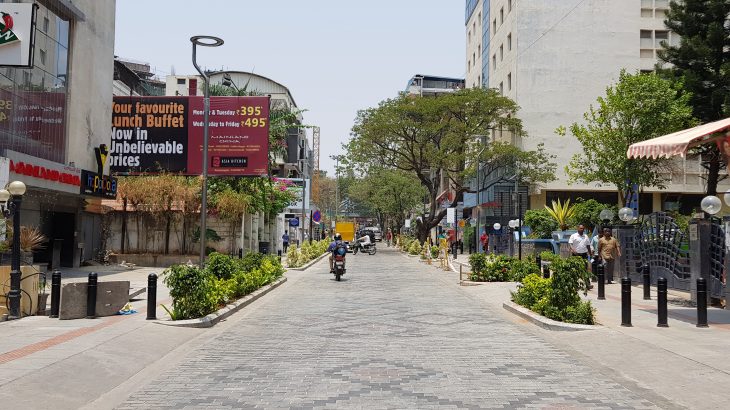With the whole world trying to prepare for a pitched battle against the COVID-19 pandemic, there is a need to address and rethink our urban-planning strategies. On the evening of 27th May 2020 at 4 PM an online panel discussion dubbed “Rethinking urban planning and governance” was brought to life by 4 panellists and organised by WTC. The panellists were from distinguished backgrounds and the online session was moderated by Dr Ravindra Adi, IAS the Chairman of Smart Cities Foundation, India. He was also (Formerly) the Chief Secretary, Govt. of Karnataka.
The participant audience of this online discussion had the pleasure of listening to the views expressed by Dr M. Ramachandran, IAS (Former Secretary, Ministry of Urban Development, Govt. of India), Mr Kishore Jain, MD of Jain Heights and Structures Pvt. Ltd. He is also the President of CREDAI, Bengaluru. They were joined by Ar Naresh V Narasimhan, Managing Partner of the 50-year-old Architectural Practice Venkataramanan Associates headquartered in Bengaluru. Here is a brief rundown of what the panel had to offer.
Cities are the engines of change in every country
Numerous people migrate to cities in search of a better life than the ones they left behind. For some, it’s the glamour and amenities a city offers, for others it is the opportunity to earn a decent living, for many, it is the promise of a square meal every day that drives migration, while some move for education and better healthcare. Whatever their reasons are, thousands of people continue to pour into cities daily.
However, the recent pandemic has shown just how unprepared cities are.
It has shown how many of these people end up becoming unoiled cogs in the machine that a city is. This pandemic has suddenly exposed just how unorganised and ill-maintained our cities are. Around 70% of the infected are estimated to live in cities. So, how do we address the dilapidating condition of the Indian city?
To answer this question, our Principal, Ar. Naresh Narasimhan participated in a panel discussion with policymakers and industry leaders organised by WTC. Here they discussed what challenges lie ahead for urban planning and governance of cities.
The key takeaway points from the talk ‘Rethinking Urban Planning and Governance’
- De-densify, de-motorise and re-pedestrianise the city.
- Shift from the outdated ‘Land-use Planning’ approach by concentrating more on development efforts that improve the Urban economy.
- Maintain Public Health in cities by giving access to quality healthcare across (Society) all class of people.
- Concentrate on developing sustainable and affordable housing for the (Migrant) working class.
- Encourage non-motorised transport where possible.
- Create flexible/multi-use spaces that can serve as a base for launching an immediate response during emergencies.
- Cities must govern themselves under a coherent and streamlined governing body to avoid many different authorities stepping on each other’s toes.
- Cities should have a limit to their growth and resource usage. Newer cities must be developed with appropriate urban planning and amenities to cater to their needs.
- The approach to planning and developing cities must be participatory- inclusive and people-centric
What do you think about the state of the Indian city?
Do you have any innovative solutions? Feel free to comment and share your views and ideas. We grow as a community by speaking up in times of crisis. We are listening.
